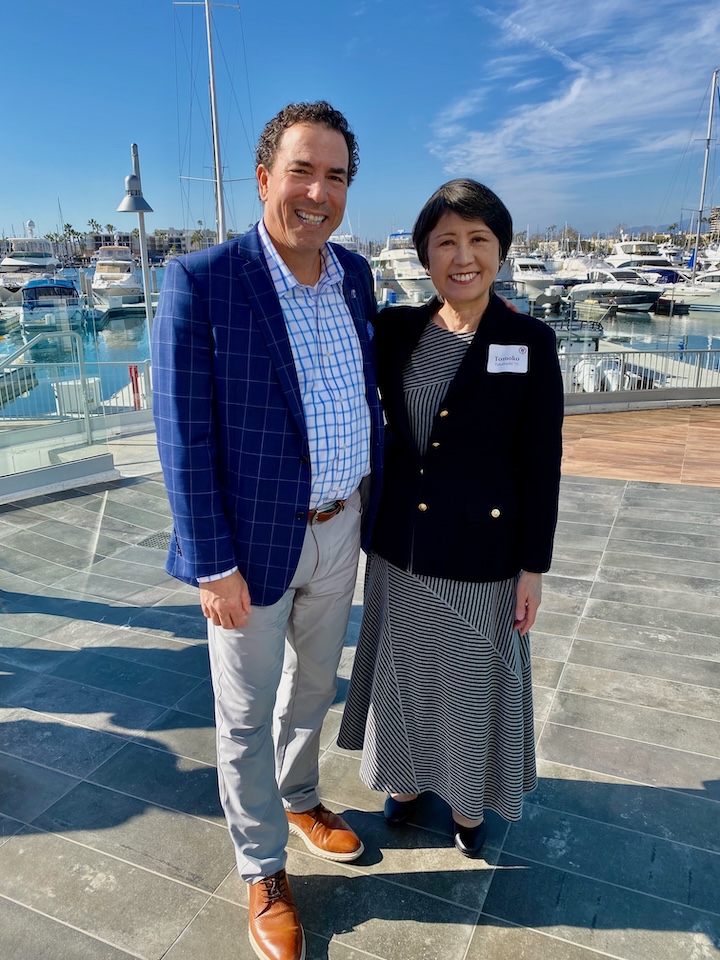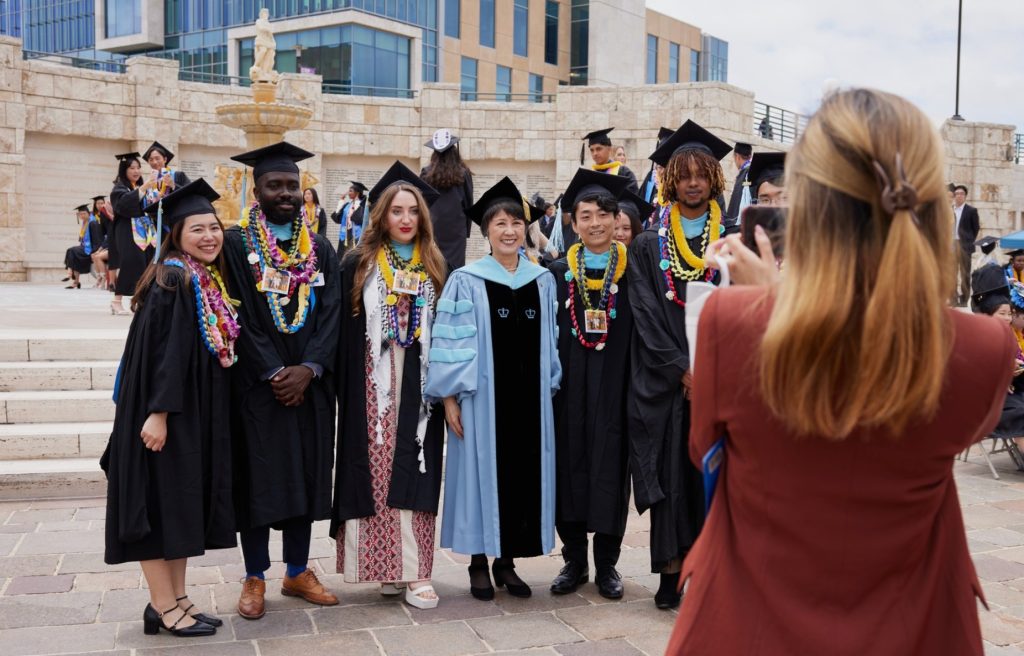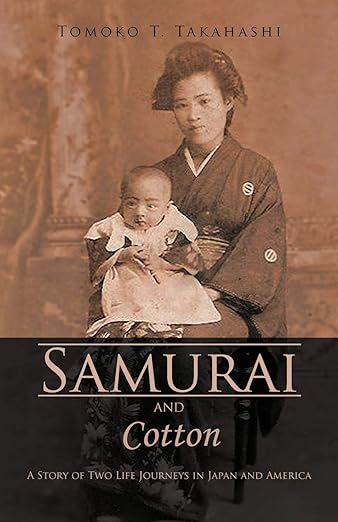The following article appeared in the From The Hill Magazine Winter 2025 Issue. Follow these links to make a gift, update your information, or submit a class note.
Become a Global Citizen Wherever You Are
By Kierran Broatch, Assistant Vice President for Advancement
Administrator, educator, researcher, textbook writer, translator, and award-winning author, Tomoko Takahashi ’77, ’06 D.H.L, Ph.D., Ed.D. has worn many different hats throughout her accomplished career in academia. Tomoko’s Albertus story began as an international student during the College’s 50th anniversary year. Now, almost five decades later, she is returning to Albertus filled with excitement, beginning a new term of service on the Board of Trustees and ready to celebrate her alma mater’s historic Centennial. Kierran Broatch, Assistant Vice President for Advancement, recently interviewed Tomoko to gain more insight about her lifelong journey in the world of higher education and what led her to this new chapter with the College.
Tomoko, you served with distinction on AMC’s Board of Trustees for over 20 years before stepping down in 2017. Why have you decided to rejoin the Board, and why now?
I was first elected to the board as an alumni trustee in 1996 and then appointed as a regular trustee to continue serving on the board. I stepped down from the board in 2017, which was a challenging year for me. My mother passed away in May of that year. Also, around that time, Dr. Julia McNamara retired as the long-serving president of Albertus. Dr. McNamara was the main reason I had remained on the board for two decades. I felt it was about time I retired from the board with her.
In January 2024, I attended an alumni event in Southern California and met President Marc Camille for the first time. His genuine character, passion, and vigor impressed me. I enjoyed our friendly interactions at the event. To my surprise, I was asked to return to the board a few months later. Of course, I accepted the board’s invitation because it’s such an honor. With 30+ years of experience in academia and academic administration, I feel confident I could contribute more than ever.
What was one of your most memorable experiences during your time as an Albertus student? And did it help shape who you are today?
I came to the United States as a transfer student from Japan and became a junior at Albertus in the fall of 1975. Every discovery of a cultural difference was exciting, eye-opening, and memorable. My college journal is filled with unforgettable experiences, making it difficult to select one. My entire time at Albertus was memorable and helped me begin to shape who I am today.
I most fondly remember the kindness of the Dominican Sisters, staff, faculty, and classmates—particularly my roommates, Meg Slayton Taylor ’76 (1954–2021) and Roni Krisavage ’77. The only Japanese student on campus, I was an “exotic” presence, but they embraced me as such while trying to learn about me and my culture. Thanks to them, I enjoyed my college life to the max.
After graduating from Albertus, you went on to earn three graduate degrees, including a doctorate, from Columbia University, and then you earned another doctorate from Monash University in Australia. What is your inspiration as a lifelong learner?
Japanese society did not (and still does not) expect women to become “overeducated.” I had already taken the road far less traveled—to college abroad, which was rare back then and considered “too much for a girl.” Going to graduate school was utterly unthinkable.
While at Albertus, however, my female professors, notably Dr. Susan Cole and the late Mrs. Florence Jacobson, inspired me. I thought I could become an academic like them. I challenged myself and went to Columbia University for a master’s degree. I didn’t think of anything beyond that then, but eventually, I pursued and earned a doctorate in 1984.
Soon after, I became involved in graduate education and teacher training. Lifelong learning became essential in my life. Quite naturally, I encouraged my graduate students to continue learning. I was happy to see many pursue additional or advanced degrees after graduation. At one point, I wanted to share and understand their struggles, which I thought would encourage them. I found a research topic I felt passionate about—translation theory and research. So, I enrolled in a distance learning program at Monash University in Australia, which was well-known for translation studies.
As a result, I earned my second doctorate in translation studies 30 years after my first one in applied linguistics from Columbia. The only problem was that I didn’t struggle because I already had so much academic experience in the related field. My professors said I should be teaching in the program instead. To them, I was an unusual student. I enjoyed the experience, which defeated my original purpose. But my “challenge” still sent my students a message: it’s never too late, or you’re never too old, to go back to school and continue learning.
Throughout your career, you have been an impactful teacher-trainer, innovative researcher, prolific writer, and translator throughout your career. Why is language and intercultural education such a passion of yours?
When I first came to the United States, I found it challenging to master English as a second language (ESL). I also realized how ineffective the English education I had received in Japan was. Based on my experience as an ESL learner, I became passionate about language education. In graduate school, I studied applied linguistics, searching for better ways to teach English. Since language cannot be separated from culture, I also became interested in intercultural education.
Since graduate school, I have specialized in research in semantics, second language acquisition, sociolinguistics, intercultural communication, etc. Utilizing my expertise in those areas and hoping to help improve English education in Japan, I have published 15 or so textbooks for Japanese learners of English, eight of which became bestsellers in Japan, were translated into Chinese and Korean, and were published in Taiwan, Mainland China, and South Korea. In addition, I have published several books and numerous scholarly articles in applied linguistics to help advance language and intercultural education research in the United States and Japan.
I also became passionate about teacher training and sent many former students to teach English worldwide, especially in Japan.
For more than 30 years in various leadership roles, you have contributed to establishing Soka University of America as an emerging student-centered university for the 21st century. What is it about your work there that keeps you going?
Decades ago, I met a Japanese educator, Buddhist philosopher, peacebuilder, author, and poet, Daisaku Ikeda (1928–2023), who founded Soka University in Japan in 1971. My encounters with him and my avid reading of his books and writings inspired me so much that I pledged to help establish a university in California that Dr. Ikeda envisioned. To this day, my promise to him and my dedication to my students have kept me going. Having been involved in establishing Soka University of America since 1992, it is gratifying to see SUA thrive today as one of the top national liberal arts colleges in California.
Albertus turning 100 represents a once-in-a-lifetime milestone, reminding us to reflect on a historic century, celebrate the present moment, and look forward to a promising future. What excites you most about helping lead Albertus into a new century of impact?
I came to Albertus in 1975, the 50th anniversary year. This fact alone is exciting. And now, I get to celebrate my alma mater’s 100th anniversary! This is the beginning of another new chapter for Albertus, and I am excited to be part of the new journey.
Editor’s Note: In addition to her distinguished service to Albertus, Tomoko is also a member of The Prospect Hill Society—a group of dedicated and generous donors who have remembered the College in their estate plans. If you want to know more about Tomoko’s unique experience at Albertus, she recommends her memoir, Samurai and Cotton—A Story of Two Life Journeys in Japan and America, published in 2011 and available from Amazon. Chapters 8 and 9 describe Tomoko’s experience at Albertus.



